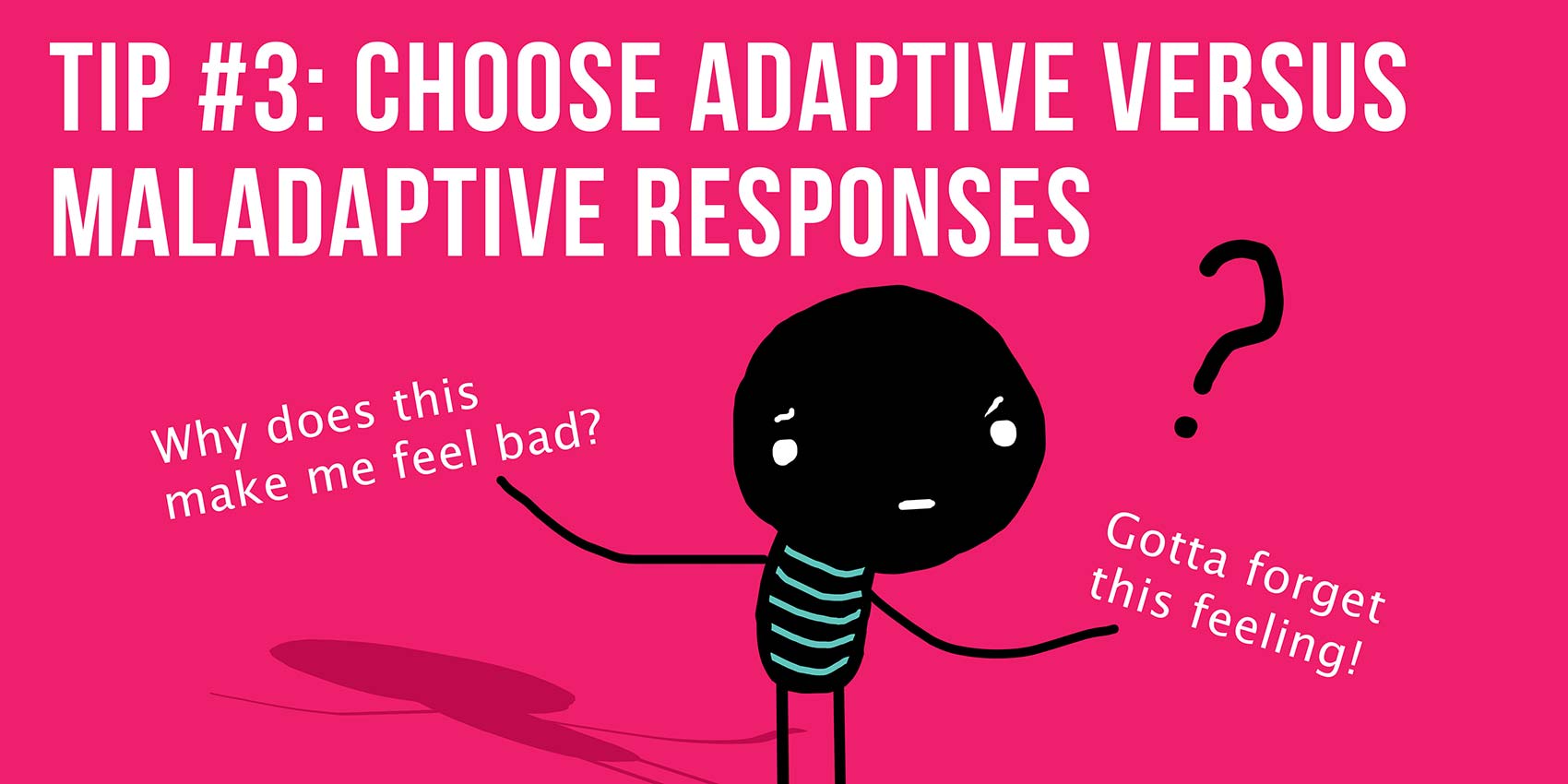18 Apr Tip 3: Choose adaptive versus maladaptive responses to situations

When you choose adaptive ways to express yourself, your actions and responses are generally positive and promote communication and peace. Nice.
When you choose maladaptive ways to express yourself, your actions are negative and promote more problems. Ugh, gross, run.
Think of the word adaptive as beneficial or helpful and maladaptive is thus NOT helpful or beneficial.
Let’s look at this example:
Franco and George were talented athletes and best friends in elementary and middle school. They played baseball, soccer and basketball together since kindergarten. When they tried out for varsity in 9th grade, George made it and Franco did not. Although Franco said it was no big deal, George wondered if that was how Franco really felt. That weekend, Franco went to a party and was offered some alcohol. He drank too much. He wanted to forget his feelings about not making the team. He hated that he had let down his parents and wasn’t as good as his best friend anymore. Since the try-outs, he has been mean to his friend and embarrassed to be around his dad because his dad always put so much pressure on him to do well.
That night at the party, Franco went home drunk, got caught, got punished and began a spiral of bad behavior until George intervened, as a good friend would, and helped Franco deal with his issues. Franco had a lot going on. His “button” was that he feels he will never be good enough for his dad. (Confused about the term, “button”? See previous post.) Not making the team activated this button (confirmed to Franco that his feelings might be true) but he wasn’t aware of this and thus acted out his frustration, hurt, and shame instead. He chose maladaptive behaviors (drinking and being mean to his best bud) that ultimately only made him feel worse about the situation.
Can you see where Franco chose maladaptive responses to feeling like he let people down? Drinking is not going to solve the problem. It’s not even going to help anyone feel better. It’s definitely a maladaptive reaction.
What could Franco have done? What can you do when faced with tough situations or emotions that feel overwhelming? How can you make adaptive choices? Here are some steps to keep in mind:
Become aware of your feelings. Franco felt like a loser and that he let down himself, his best friend and his dad. Sometimes it’s really difficult to come to terms with exactly how you are feeling, but when you are aware of them, you can decide how to express them.
Speak your mind in a way that helps people understand how you feel. Franco told George and his father how badly he felt about the whole thing. Communicate in a way that helps people understand how you are feeling.
If people don’t accept your truth, that is about them, not you: Don’t take it personally. George understood, but Franco’s father was still really upset with him. That’s Franco’s dad’s problem, not Franco’s.
Choose adaptive ways to deal with your emotions. Franco played sports as much as possible and vowed to practice hard enough to make the team next year. Make a list for yourself of things you can do that make you feel better or that release your emotions in a positive, adaptive way.




corina
Posted at 05:21h, 16 AprilRecently I experinced a maladaptive response when I failed my math test. I got very frusturated because i was certain i knew what i was doing but i still managed to fail. My mom got very upset with me and i lashed out at her.
WLKHS2214
Posted at 23:03h, 26 MarchI usually say a lot of sarcastic comments to people instead of actually saying what I really feel.
WLKHS2206
Posted at 11:11h, 12 MarchA maladaptive response that I’ve had recently is that my brother got a new phone and I didn’t. This made me upset because he had a better phone than me.